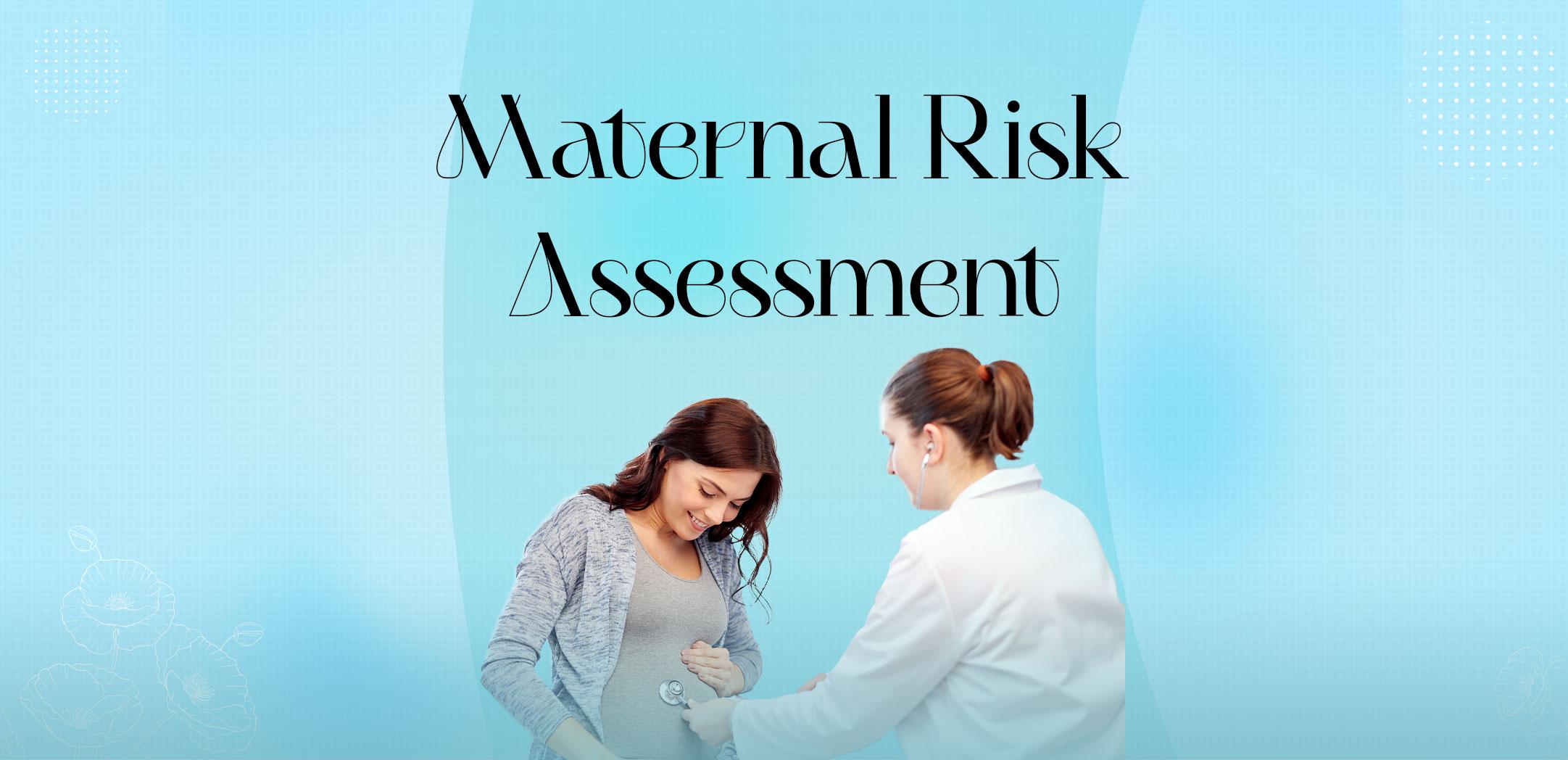Maternal Risk Assessment
"Ensuring Healthy Pregnancies: The Importance of Maternal Risk Assessment in Prenatal Care"
Maternal risk assessment, also known as maternal risk screening or antenatal risk assessment, is a vital process in prenatal care that involves evaluating the health and medical history of a pregnant woman to identify any potential risks or complications associated with her pregnancy. The primary goals of maternal risk assessment are to ensure the well-being of both the mother and the developing fetus, as well as to provide appropriate care and interventions to manage any identified risks. Here are some key points related to maternal risk assessment:
1. Medical History: Maternal risk assessment typically begins with a detailed review of the woman's medical history. This includes information about her previous pregnancies, existing medical conditions, medications, surgeries, family medical history, and lifestyle factors.
2. Physical Examination: A physical examination is often performed to assess the mother's general health, including blood pressure, weight, and overall well-being. Any signs of health issues are noted.
3. Laboratory Tests: Various laboratory tests may be conducted to evaluate the mother's health and screen for potential risks. These tests may include blood tests (e.g., blood type, Rh factor, complete blood count), urine tests, and screening for infectious diseases (e.g., HIV, syphilis).
4. Ultrasound Scans: Ultrasound scans are frequently used to assess the growth and development of the fetus, as well as to identify any structural abnormalities or complications in the pregnancy.
5. Maternal Age: Advanced maternal age (typically considered as age 35 or older) can be a risk factor for certain pregnancy complications, and maternal risk assessment takes this into account.
6. Preexisting Conditions: Medical conditions such as diabetes, hypertension, thyroid disorders, and autoimmune diseases can impact the pregnancy and are carefully evaluated during the risk assessment.
7. Prenatal Care Plan: Based on the assessment, healthcare providers develop a personalized prenatal care plan. This plan may involve additional monitoring, specialized medical care, and lifestyle recommendations to manage identified risks.
8. Counseling: The woman and her healthcare provider discuss the results of the risk assessment, potential risks, and available options for addressing any concerns. This may include advice on nutrition, exercise, and other lifestyle factors.
9. High-Risk Pregnancies: Some pregnancies are considered high-risk due to the presence of multiple risk factors or specific medical conditions. High-risk pregnancies require more frequent monitoring and may involve consultations with specialists.
Maternal risk assessment is a proactive approach to ensuring the well-being of both the mother and the baby throughout the pregnancy. It allows healthcare providers to identify and address any potential issues early, ultimately leading to better pregnancy outcomes. It's essential for pregnant women to attend regular prenatal visits and follow the guidance provided by their healthcare team.1. What is maternal risk assessment, and why is it important during pregnancy?
-Maternal risk assessment is the process of evaluating a pregnant woman's health, medical history, and other factors to identify potential risks or complications in her pregnancy. It's essential to ensure the well-being of both the mother and the developing fetus, as early identification of risks allows for appropriate care and interventions.
2. What factors are considered in maternal risk assessment?-Several factors are considered, including the woman's medical history, age, existing medical conditions, family medical history, and lifestyle choices. Laboratory tests, physical examinations, and ultrasound scans are also used to assess the pregnancy.
3. When is maternal risk assessment typically performed?-Maternal risk assessment begins early in pregnancy, often during the first prenatal visit, and continues throughout the pregnancy. Additional assessments may be scheduled at different points based on the individual's medical history and risk factors.
4. What are some common maternal risk factors or conditions that may be identified during the assessment?-Common maternal risk factors include advanced maternal age, preexisting medical conditions (such as diabetes or hypertension), a history of pregnancy complications, infectious diseases, and lifestyle factors like smoking or substance abuse.
5. What happens if a maternal risk is identified during the assessment?-If a risk or complication is identified, healthcare providers will develop a personalized prenatal care plan. This plan may involve additional monitoring, specialized medical care, lifestyle recommendations, and, in some cases, consultations with specialists to ensure the best possible outcome for both the mother and the baby.



Comments (0)